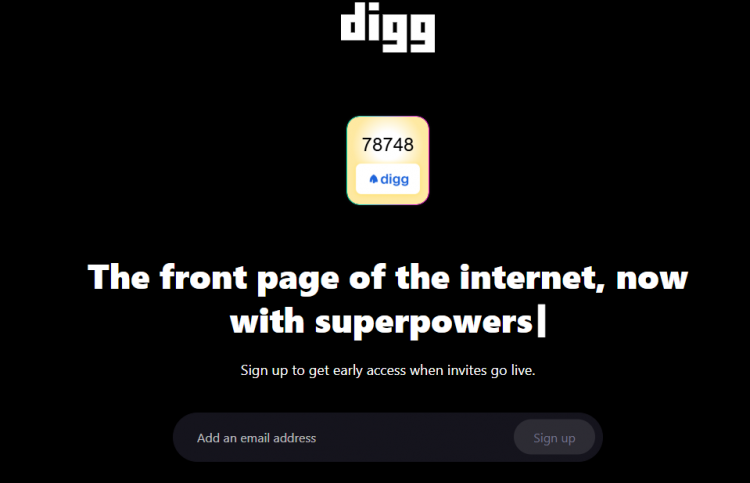Digg, the once-dominant link-sharing platform that helped define early social media, is making a comeback. More than a decade after its decline, Digg is relaunching under the leadership of its founder, Kevin Rose, with backing from Reddit co-founder Alexis Ohanian. The new iteration aims to build a community-first social platform, using artificial intelligence to reshape content moderation and engagement.
The revamped Digg, which has been quietly in development, will initially launch with limited features, Rose said. "If you come on day one, it's 99.9 percent nostalgia and you're like, damn, this is like a slightly updated version of Digg that looks really cool," Rose said. Over time, the platform intends to introduce AI-powered moderation and community tools designed to streamline user experience while maintaining an emphasis on human engagement.
Rose will serve as chairman, with design and product executive Justin Mezzell as CEO and Ohanian in an advisory role. Their firms are investing in the project, though financial details of the acquisition from Money Group were not disclosed. The goal, Rose said, is to create an alternative to major platforms like Reddit and X by focusing on user-driven communities rather than algorithmic engagement designed to maximize ad revenue.
"If we can create more of a dynamic canvas where AI agents are layered on top to assist, to help, to do wild things, to create games, to do whatever that community wants them to do, then we have something," Rose said. The platform will allow users to integrate AI tools within communities, with potential applications ranging from automated moderation to creative content curation.
Digg originally launched in 2004, pioneering the upvote/downvote model that was later popularized by Reddit. At its peak, the platform had 40 million monthly users, but a series of missteps, including controversial redesigns and leadership changes, led to its decline. In 2012, Digg was split up and sold, with LinkedIn acquiring some of its assets.
The new Digg seeks to avoid the pitfalls that doomed its predecessor by fostering a more engaged and self-regulated community. Unlike Reddit, where moderation is largely volunteer-driven, Digg plans to use AI to automate tedious moderation tasks, allowing human moderators to focus on community-building rather than content policing. "How can we remove the janitorial work of moderators and community managers and convert what they do every day into more of a 'director of vibes, culture, and community' role?" Rose said.
Mezzell, who will oversee daily operations, said the relaunch is driven by a desire to create a more meaningful online space. "The social space online is definitely harsher, it feels like, than it's ever been before," he said. "It feels really difficult to connect." The platform's design will focus on fostering thoughtful conversations rather than amplifying outrage-driven content.
The team is also experimenting with ways to reward users for positive contributions without relying on traditional follower counts or engagement metrics. "There are all these very simple systems that we already have, for commenting systems and branching and all that stuff. But even if we start there, we cannot stop asking the question about how to give people the respect for being really insightful, for being really encouraging, for being really funny," Mezzell said.
Digg's return comes at a time when social media users are increasingly dissatisfied with major platforms. Reddit's decision to charge for API access led to widespread user backlash, while X (formerly Twitter) continues to face criticism over content moderation and policy shifts under Elon Musk's leadership.
The new Digg is expected to launch as both a website and a mobile app in the coming weeks.






